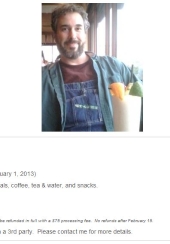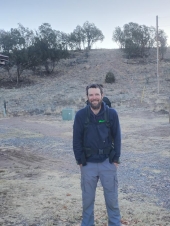I have word fasted. I was married for a few years, long ago. At one point my husband told me I shouldn’t talk (no one would get away with that with me nowadays!) because what I had to say was always so unacceptable (in his eyes).
Anyway, out of curiosity what it would be like, and what would happen if I said nothing, for a year I said nothing except if it was necessary and or totally superficial as in answering “how are you” or weather conditions. It was an interesting year, I observed many things about various individuals, groups, power, dynamics of social dominance and social flow, lots of things. When I wasn’t sharing my ideas and thoughts, my mouth was on holiday but my brain wasn’t. And I guess some Permies know I am long term divorced.
Regarding food fasting, I have done that too. And it’s similar to what I said about the word fast freeing me to spend my energies elsewhere.
As has been said, it is major physiological work to digest food. When our bodies are not digesting food, those energies become available for other functions (like repair). And the time spent planning preparing and consuming food is time that becomes available for other activities.
My experience has mostly been intermittent fasting and I have done that for health reasons. When we run out of ready nourishment, that would be the glycogen in our livers as well as wherever else we store it, then our bodies go into a process called autophagy, (awe TOFF uh jee) which means digesting oneself.
The wonderful thing about autophagy is that our bodies are selective in what it digests first. Senescent cells precancerous cells, marginally healthy cells, cells that are taking up space and utilizing resources to maintain themselves but not contributing to the function of the organ of which they are a part…. those are the cells that are first to be digested, think of it as a self cleaning self rejuvenating process, and you won’t be far off.
I don’t think it has been established how long a fast is required to enter a state of autophagy. Likely it varies between individuals.
My source on this information is from a podcast called “the drive”, hosted by Peter Attia MD.
Do your own research in this, but it’s my understanding that a period of fasting prior to surgery promotes faster healing and quicker recovery. Timing is probably crucial, and I can’t say what the intervals need to be.
As we all know, anybody can say anything on the internet, I have a lot of confidence in Attila’s ability to identify real from bogus, when it comes to his field of expertise, but it’s heavy duty scientific physiologic vocabulary. It is current physiology research. If I can find a couple links to the podcast, I will add them.
So, here’s a link of a specific episode, fasting, autophagy, and how that relates to new cancer treatment protocols. It’s not the only episode that relates to fasting, but searching on my phone is challenging for me.
https://peterattiamd.com/eileenwhite/
I think it takes you to the Peter Attia . Com website where the there is an archive of all episodes. There is a broad scope of topics all of them related to optimum health for present and future, prevention rather than pharmaceuticals.

 15
15




 8
8




 12
12




 11
11




 14
14




 8
8





 9
9




 10
10




 4
4




 9
9




 8
8




 8
8




 12
12




 8
8




 10
10




 9
9




 10
10




 6
6




![Filename: Fasting.jpg
Description: [Thumbnail for Fasting.jpg]](/t/190442/a/187712/Fasting.jpg)
 2
2




 5
5




 3
3








 2
2




 3
3








 4
4









